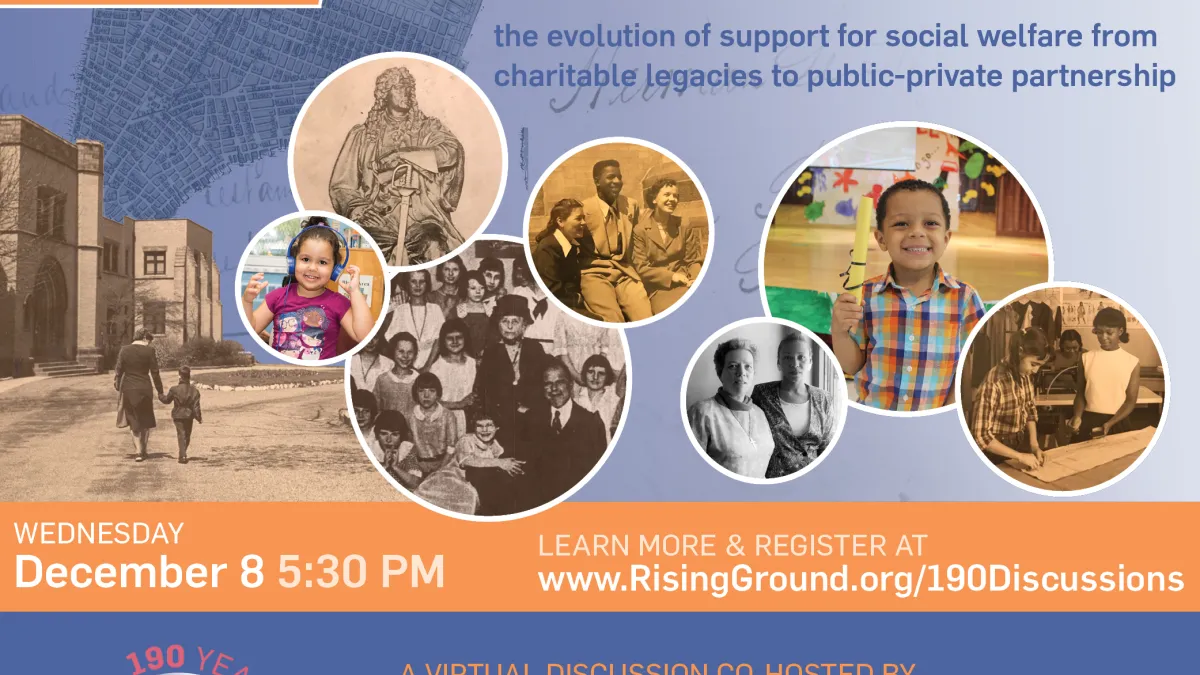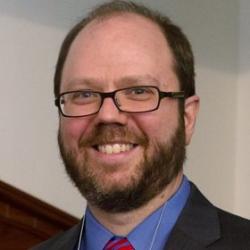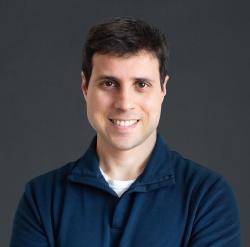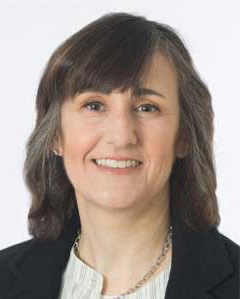The Evolution of Support for Social Welfare

Join Trinity and Rising Ground on December 8, for a third online discussion commemorating Rising Ground’s 190th Anniversary with a look at the financing of child welfare, human services, and nonprofit organizations and the evolution from our founding in 1831 at Trinity Church Wall Street to today.
Rising Ground CEO Alan Mucatel will join Doug Bauer of the Clark Foundation,Michael Brown of the Wharton School of Business at the University of Pennsylvania, Natasha Lifton of Trinity Church Wall Street, and Gregory Witkowski of Columbia University. This discussion will build on our past discussions and explore the philanthropic, social, and government histories of financing programs for the welfare of children, families, and vulnerable populations.
Register is closed
Some History:
When the Leake & Watts Orphan House opened in 1831, it had been just four years since New York, the first state to pass legislation for the total abolition of slavery, had fully emancipated slaves, while slavery was still alive and well throughout the region and nation. This coincides with various waves of immigration from across Europe, explaining the rapid expansion of New York during this time and an influx of orphaned children. As various national, religious, and ethnic groups grew in New York City throughout the 19th century, there was a broad landscape of distinct communities and biases that shaped the experience of each.
In its founding documents, the Leake & Watts Orphan House declared it would support orphaned children no matter their “creed or nationality.” While a progressive approach to handling various immigrant communities in that time, it would still be a little less than a century later that the institution welcomed its first African-American children, a community that had formed a parallel child welfare system and which brought its own set of social and economic challenges tied to the history of slavery and systems of oppression.
Today, more than 98% of the children, adults, and families Rising Ground supports are “of color.” Rising Ground supports New Yorkers who continue to see the social and economic disparities created by systemic biases. Alongside black communities facing the continuation of diminished socio-economic opportunity, Rising Ground supports various immigrant communities that look different from those of the 1830s. More broadly, the work Rising Ground does is both shaped by the experience of communities of color and in turn has a lasting impact on these communities.
2021 Discussion Series: 190 Years of Hope & Opportunity
This year, Rising Ground commemorates the 190th anniversary of the opening of the Leake & Watts Orphan House in Lower Manhattan in 1831, the beginning of a rich history that saw the organization evolve from an orphanage to one of New York City’s leading human services organizations. Today, programs range from foster care and family stabilization to special education and early childhood development to gender-based violence services, programs for children and adults with intellectual and developmental disabilities, juvenile justice programs, community health services, and more.
The series is a partnership between Rising Ground and Trinity Church Wall Street, site of the original Leake & Watts Orphan House and longtime partner.
To learn more, please visit www.RisingGround.org/190.
About the Speakers:
Gregory R. Witkowski is a Senior Lecturer in the Discipline of Nonprofit Management at Columbia University’s School of Professional Studies and affiliate faculty at the National Center for Disaster Preparedness. He is the series editor of the Georgetown University Press Series “Philanthropy, Nonprofit and Nongovernmental Organizations,” which publishes books for scholars and practitioners. Before joining the faculty at Columbia, he helped found the first school dedicated to the study of philanthropy at Indiana University, where he was associate professor and director of graduate programs.
His current research is on the role of philanthropy and nonprofit organizations in the relief, recovery and reconstruction of New York City after the 9/11 attacks. This singular American event transformed how we respond to disasters, teaching nonprofit leaders valuable lessons on how to work more efficiently, effectively, collaboratively and creatively to affect a greater positive impact. As nonprofits are once again on the front lines providing for social needs in a pandemic, this book will also indicate the long-tail of recovery and how disasters continue to impact individuals for years after the triggering event.
Witkowski has authored or edited three books: The Campaign State, German Philanthropy in Transatlantic Perspective, and the forthcoming Hoosier Philanthropy. His research focuses on both local interactions where the majority of philanthropic gifts go and on transnational giving, which add the complication of cross-cultural exchange. He has published and been quoted in national publications including The New York Times, The Hill, The Chronicle of Philanthropy and the Associated Press, as well as the Houston Chronicle and the Seattle Times. He was selected as a Fulbright Scholar and a Young Leader by the American Swiss Foundation.
Doug Bauer is Executive Director of The Clark Foundation, which focuses on helping individuals lead independent and productive lives and supports nonprofits and programs in New York City and Cooperstown, NY. He is also executive director of The Scriven and Fernleigh Foundations and Senior Vice President of The Clark Estates, Inc. Bauer has previously served as a Senior Vice President with Rockefeller Philanthropy Advisors (RPA); Vice President at Goldman, Sachs and Co.; President of the Goldman Sachs Philanthropy Fund; Director of Community Partnership at SmithKline Beecham (now GlaxoSmithKline); Executive Director of the SmithKline Beecham Foundation; a Program Officer for Culture at the Pew Charitable Trusts; and manager the Scott Paper Company Foundation.
Bauer’s opinions and ideas on philanthropy have been featured in the AP, Bloomberg, The Chronicle of Philanthropy, Contribute, The Financial Times, The Los Angeles Times, The New York Post, The Stanford Social Innovation Review, The Wall Street Journal and on NPR, PBS, and CNBC. Doug co-authored, with Steven Godeke, Philanthropy’s New Passing Gear: Mission Related Investing. He serves on boards of The Melalucca Foundation, National Council of Nonprofits, Partners for Health Foundation and The Rockefeller Institute of Government, and co-chairs Philanthropy New York's public policy committee. He is also a member of the Leap of Reason Ambassadors Community, and an adjunct faculty member at the University of Pennsylvania and the Columbia Business School. Bauer is a graduate of Michigan State University and holds a M.S. from Penn and a M.J. from Temple University.
Maoz (Michael) Brown is head of research at the Wharton Social Impact Initiative, a center at the Wharton School of Business focused on the role of business and capital markets in driving social and environmental good. Michael completed a PhD in sociology at the University of Chicago in 2019 with research on the history of social welfare provision in the United States. His dissertation explored the causes and consequences of innovations in 20th century nonprofit human service organizations, including the rise of fee-charging, the growing popularity of outcome evaluation, and the decentralization of financial federations.
Natasha Lifton is Director, Government Relations at Trinity Church Wall Street, where she oversees and coordinates Trinity Church Wall Street’s government relations work on policy and advocacy related to racial justice, ending mass incarceration, and housing and homelessness, as well as across its grantmaking, real estate portfolio, and community programming. Prior to joining Trinity, she was Senior Program Officer for Human Services at The New York Community Trust where she was responsible for grantmaking in homelessness, early childhood, child welfare, hunger, benefits access, and poverty reduction, as well as three funder collaboratives. Before that, Natasha served as the Director of the Office of Public Private Partnerships at the New York City Housing Authority. She was also Senior Vice President for External Affairs at Seedco, managed early childhood initiatives at United Way of New York City, was Director of the Satellite Child Care Program at the Consortium for Worker Education, and served as Director of Social Services for the New York City Public Advocate’s Office. She is a member of the Steering Committee for Fair Futures, which she helped develop and implement in partnership with the New York City Administration for Children’s Services to provide coaching for current and former foster care youth; a trustee of the Citizens Budget Commission; and a member of the Board of Directors of Green City Force.
About the Event:
Join Trinity and Rising Ground on December 8, for a third online discussion commemorating Rising Ground’s 190th Anniversary with a look at the financing of child welfare, human services, and nonprofit organizations and the evolution from our founding in 1831 at Trinity Church Wall Street to today.
Rising Ground CEO Alan Mucatel will join Doug Bauer of the Clark Foundation, Michael Brown of the Wharton School of Business at the University of Pennsylvania, Natasha Lifton of Trinity Church Wall Street, and Gregory Witkowski of Columbia University. This discussion will build on our past discussions and explore the philanthropic, social, and government histories of financing programs for the welfare of children, families, and vulnerable populations.
Register is closed
Some History:
When the Leake & Watts Orphan House opened in 1831, it had been just four years since New York, the first state to pass legislation for the total abolition of slavery, had fully emancipated slaves, while slavery was still alive and well throughout the region and nation. This coincides with various waves of immigration from across Europe, explaining the rapid expansion of New York during this time and an influx of orphaned children. As various national, religious, and ethnic groups grew in New York City throughout the 19th century, there was a broad landscape of distinct communities and biases that shaped the experience of each.
In its founding documents, the Leake & Watts Orphan House declared it would support orphaned children no matter their “creed or nationality.” While a progressive approach to handling various immigrant communities in that time, it would still be a little less than a century later that the institution welcomed its first African-American children, a community that had formed a parallel child welfare system and which brought its own set of social and economic challenges tied to the history of slavery and systems of oppression.
Today, more than 98% of the children, adults, and families Rising Ground supports are “of color.” Rising Ground supports New Yorkers who continue to see the social and economic disparities created by systemic biases. Alongside black communities facing the continuation of diminished socio-economic opportunity, Rising Ground supports various immigrant communities that look different from those of the 1830s. More broadly, the work Rising Ground does is both shaped by the experience of communities of color and in turn has a lasting impact on these communities.
2021 Discussion Series: 190 Years of Hope & Opportunity
This year, Rising Ground commemorates the 190th anniversary of the opening of the Leake & Watts Orphan House in Lower Manhattan in 1831, the beginning of a rich history that saw the organization evolve from an orphanage to one of New York City’s leading human services organizations. Today, programs range from foster care and family stabilization to special education and early childhood development to gender-based violence services, programs for children and adults with intellectual and developmental disabilities, juvenile justice programs, community health services, and more.
The series is a partnership between Rising Ground and Trinity Church Wall Street, site of the original Leake & Watts Orphan House and longtime partner.
To learn more, please visit www.RisingGround.org/190.
About the Speakers:
Gregory R. Witkowski is a Senior Lecturer in the Discipline of Nonprofit Management at Columbia University’s School of Professional Studies and affiliate faculty at the National Center for Disaster Preparedness. He is the series editor of the Georgetown University Press Series “Philanthropy, Nonprofit and Nongovernmental Organizations,” which publishes books for scholars and practitioners. Before joining the faculty at Columbia, he helped found the first school dedicated to the study of philanthropy at Indiana University, where he was associate professor and director of graduate programs.
His current research is on the role of philanthropy and nonprofit organizations in the relief, recovery and reconstruction of New York City after the 9/11 attacks. This singular American event transformed how we respond to disasters, teaching nonprofit leaders valuable lessons on how to work more efficiently, effectively, collaboratively and creatively to affect a greater positive impact. As nonprofits are once again on the front lines providing for social needs in a pandemic, this book will also indicate the long-tail of recovery and how disasters continue to impact individuals for years after the triggering event.
Witkowski has authored or edited three books: The Campaign State, German Philanthropy in Transatlantic Perspective, and the forthcoming Hoosier Philanthropy. His research focuses on both local interactions where the majority of philanthropic gifts go and on transnational giving, which add the complication of cross-cultural exchange. He has published and been quoted in national publications including The New York Times, The Hill, The Chronicle of Philanthropy and the Associated Press, as well as the Houston Chronicle and the Seattle Times. He was selected as a Fulbright Scholar and a Young Leader by the American Swiss Foundation.
Doug Bauer is Executive Director of The Clark Foundation, which focuses on helping individuals lead independent and productive lives and supports nonprofits and programs in New York City and Cooperstown, NY. He is also executive director of The Scriven and Fernleigh Foundations and Senior Vice President of The Clark Estates, Inc. Bauer has previously served as a Senior Vice President with Rockefeller Philanthropy Advisors (RPA); Vice President at Goldman, Sachs and Co.; President of the Goldman Sachs Philanthropy Fund; Director of Community Partnership at SmithKline Beecham (now GlaxoSmithKline); Executive Director of the SmithKline Beecham Foundation; a Program Officer for Culture at the Pew Charitable Trusts; and manager the Scott Paper Company Foundation.
Bauer’s opinions and ideas on philanthropy have been featured in the AP, Bloomberg, The Chronicle of Philanthropy, Contribute, The Financial Times, The Los Angeles Times, The New York Post, The Stanford Social Innovation Review, The Wall Street Journal and on NPR, PBS, and CNBC. Doug co-authored, with Steven Godeke, Philanthropy’s New Passing Gear: Mission Related Investing. He serves on boards of The Melalucca Foundation, National Council of Nonprofits, Partners for Health Foundation and The Rockefeller Institute of Government, and co-chairs Philanthropy New York's public policy committee. He is also a member of the Leap of Reason Ambassadors Community, and an adjunct faculty member at the University of Pennsylvania and the Columbia Business School. Bauer is a graduate of Michigan State University and holds a M.S. from Penn and a M.J. from Temple University.
Maoz (Michael) Brown is head of research at the Wharton Social Impact Initiative, a center at the Wharton School of Business focused on the role of business and capital markets in driving social and environmental good. Michael completed a PhD in sociology at the University of Chicago in 2019 with research on the history of social welfare provision in the United States. His dissertation explored the causes and consequences of innovations in 20th century nonprofit human service organizations, including the rise of fee-charging, the growing popularity of outcome evaluation, and the decentralization of financial federations.
Natasha Lifton is Director, Government Relations at Trinity Church Wall Street, where she oversees and coordinates Trinity Church Wall Street’s government relations work on policy and advocacy related to racial justice, ending mass incarceration, and housing and homelessness, as well as across its grantmaking, real estate portfolio, and community programming. Prior to joining Trinity, she was Senior Program Officer for Human Services at The New York Community Trust where she was responsible for grantmaking in homelessness, early childhood, child welfare, hunger, benefits access, and poverty reduction, as well as three funder collaboratives. Before that, Natasha served as the Director of the Office of Public Private Partnerships at the New York City Housing Authority. She was also Senior Vice President for External Affairs at Seedco, managed early childhood initiatives at United Way of New York City, was Director of the Satellite Child Care Program at the Consortium for Worker Education, and served as Director of Social Services for the New York City Public Advocate’s Office. She is a member of the Steering Committee for Fair Futures, which she helped develop and implement in partnership with the New York City Administration for Children’s Services to provide coaching for current and former foster care youth; a trustee of the Citizens Budget Commission; and a member of the Board of Directors of Green City Force.









